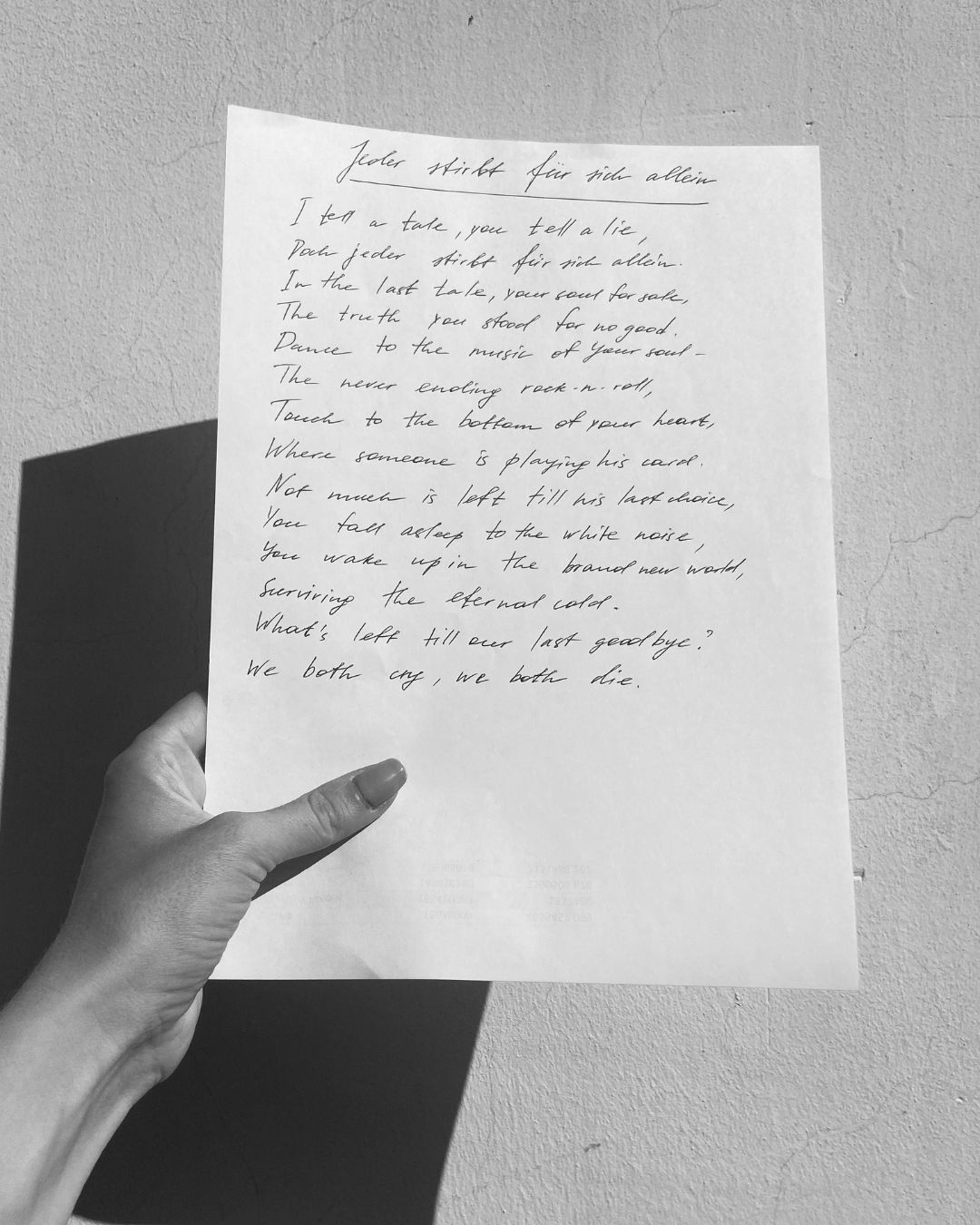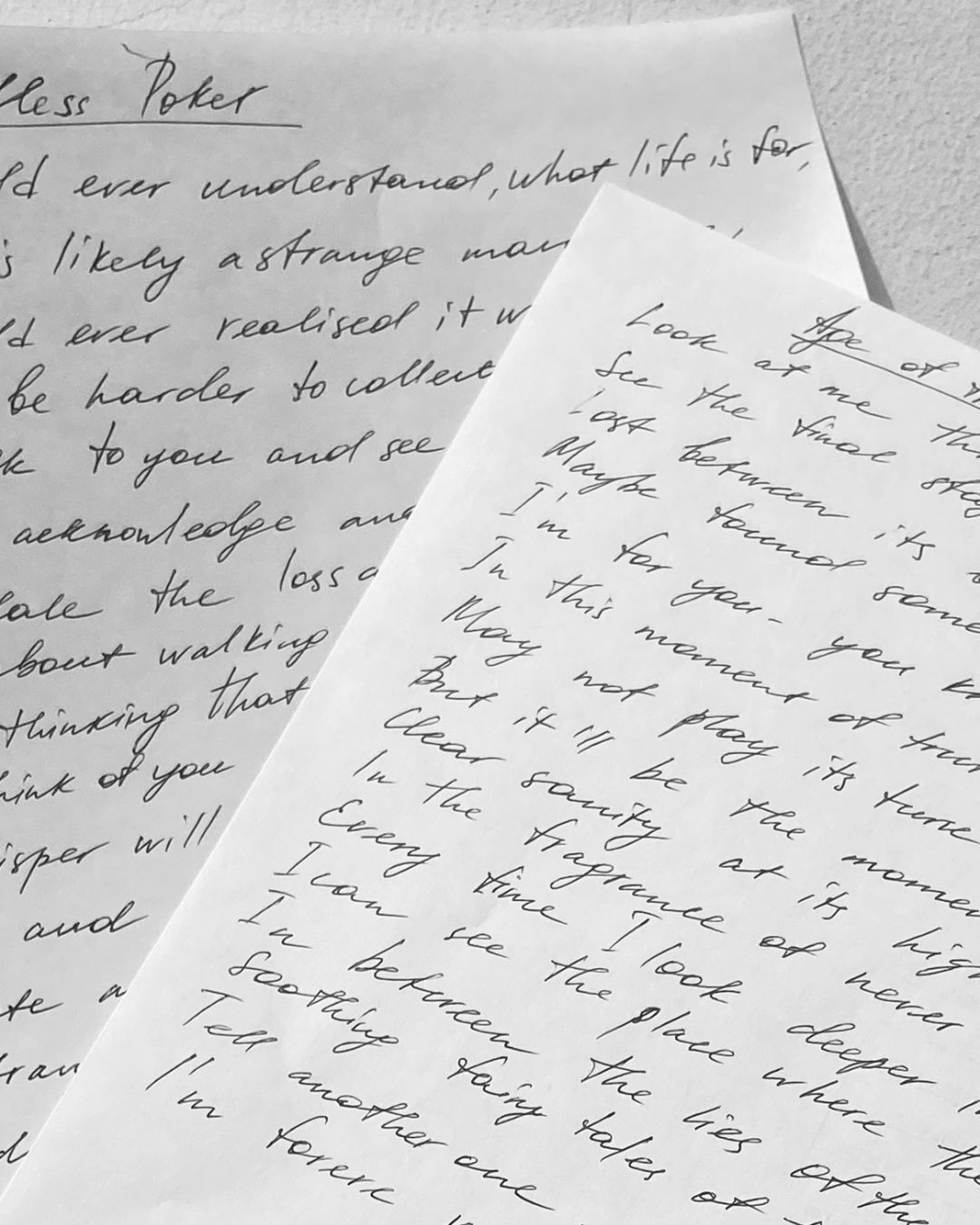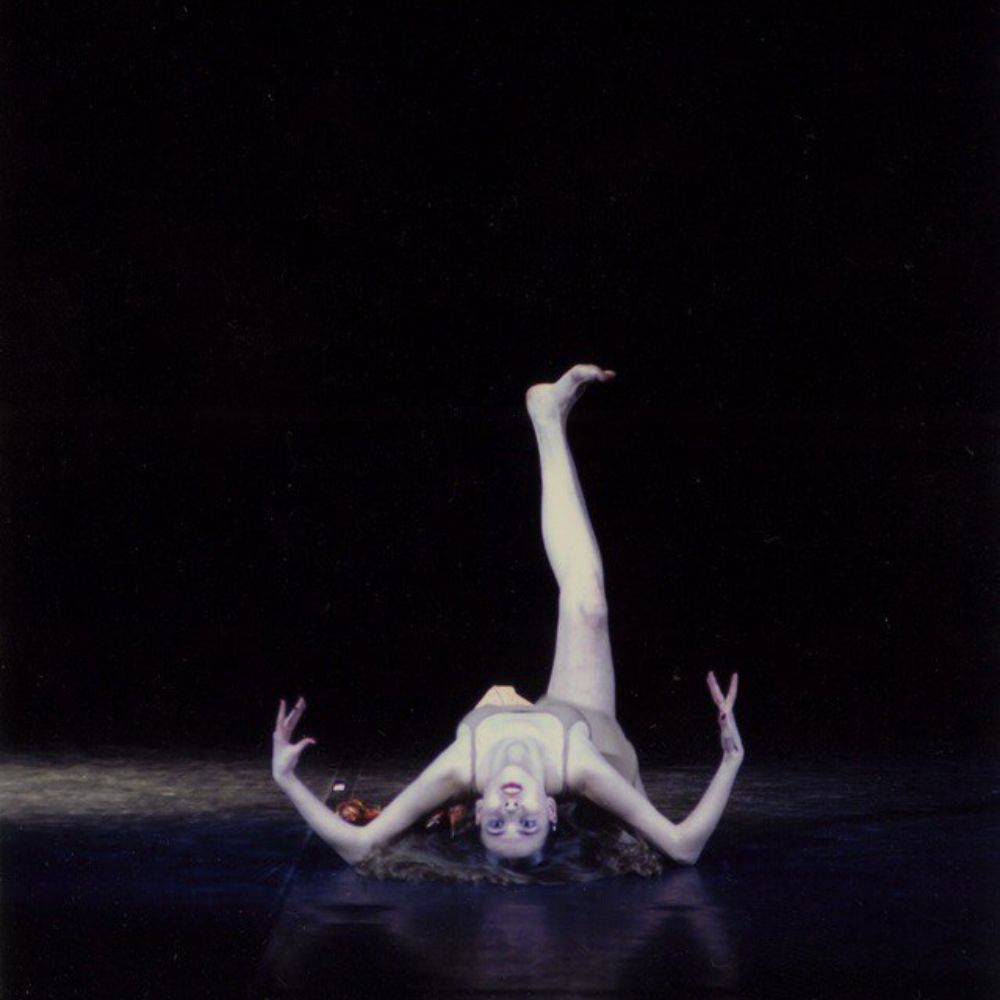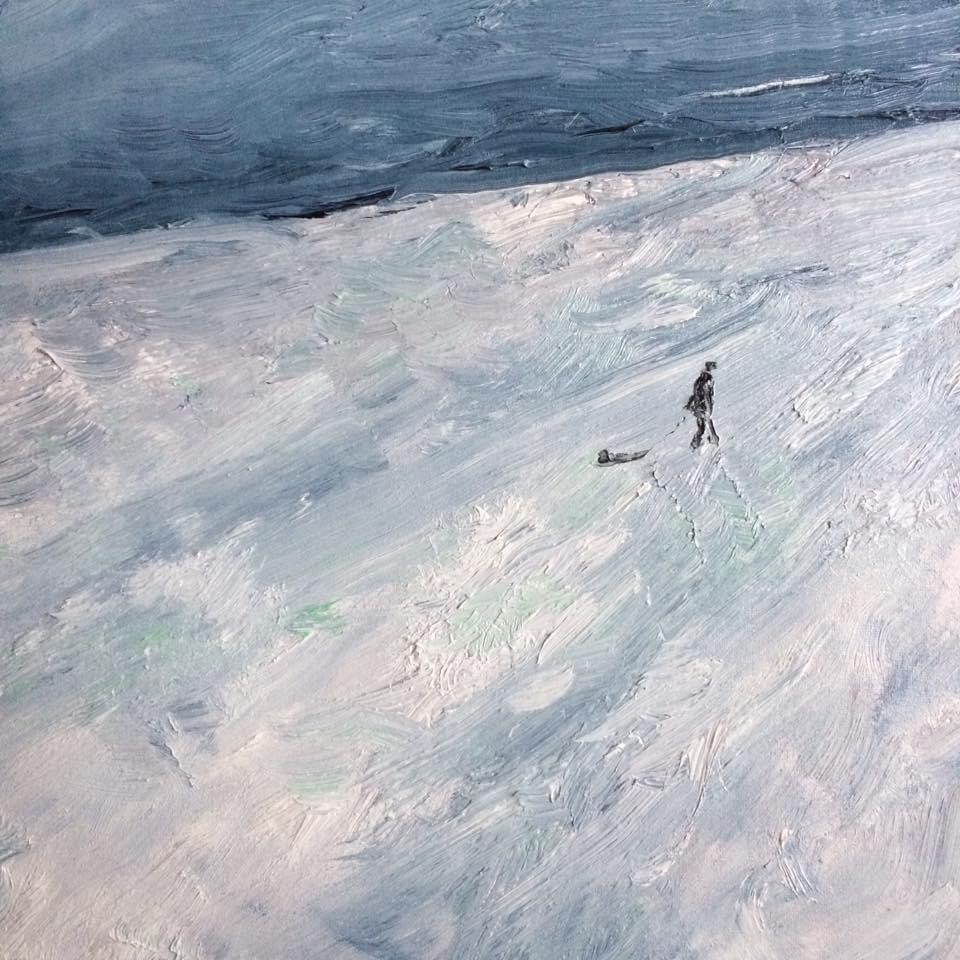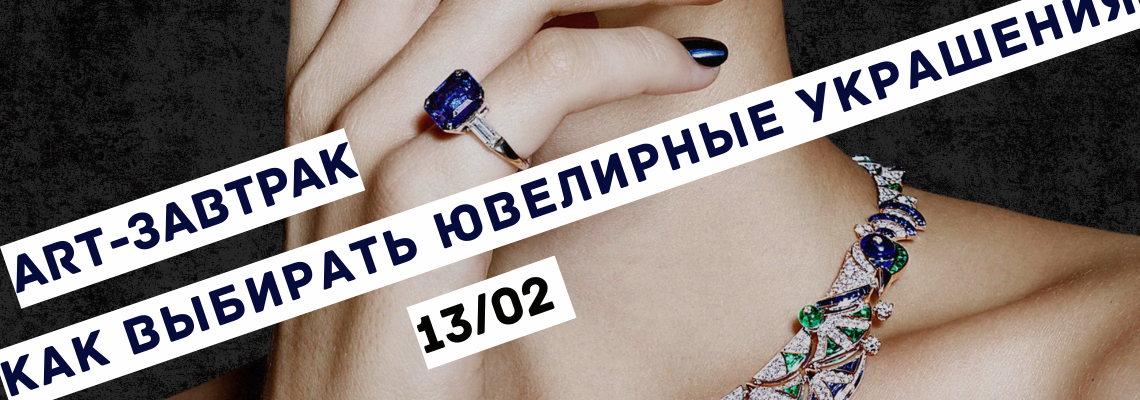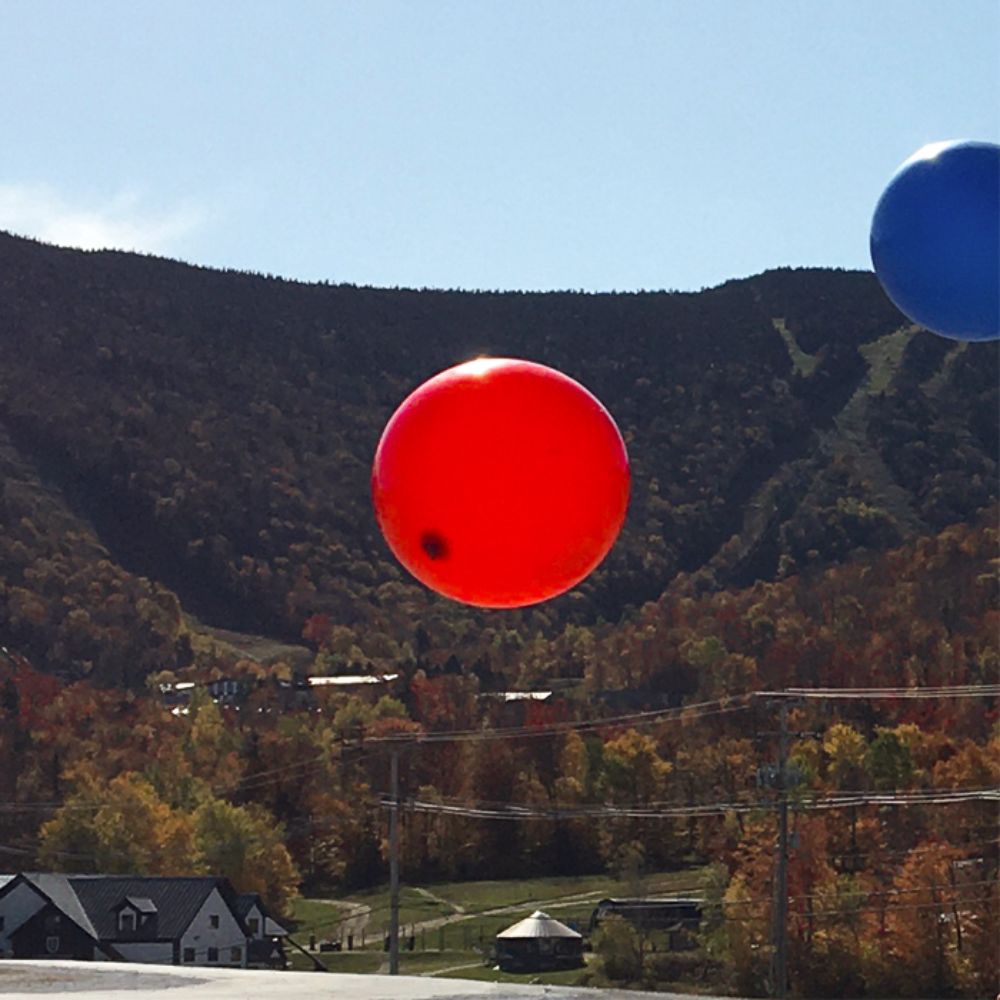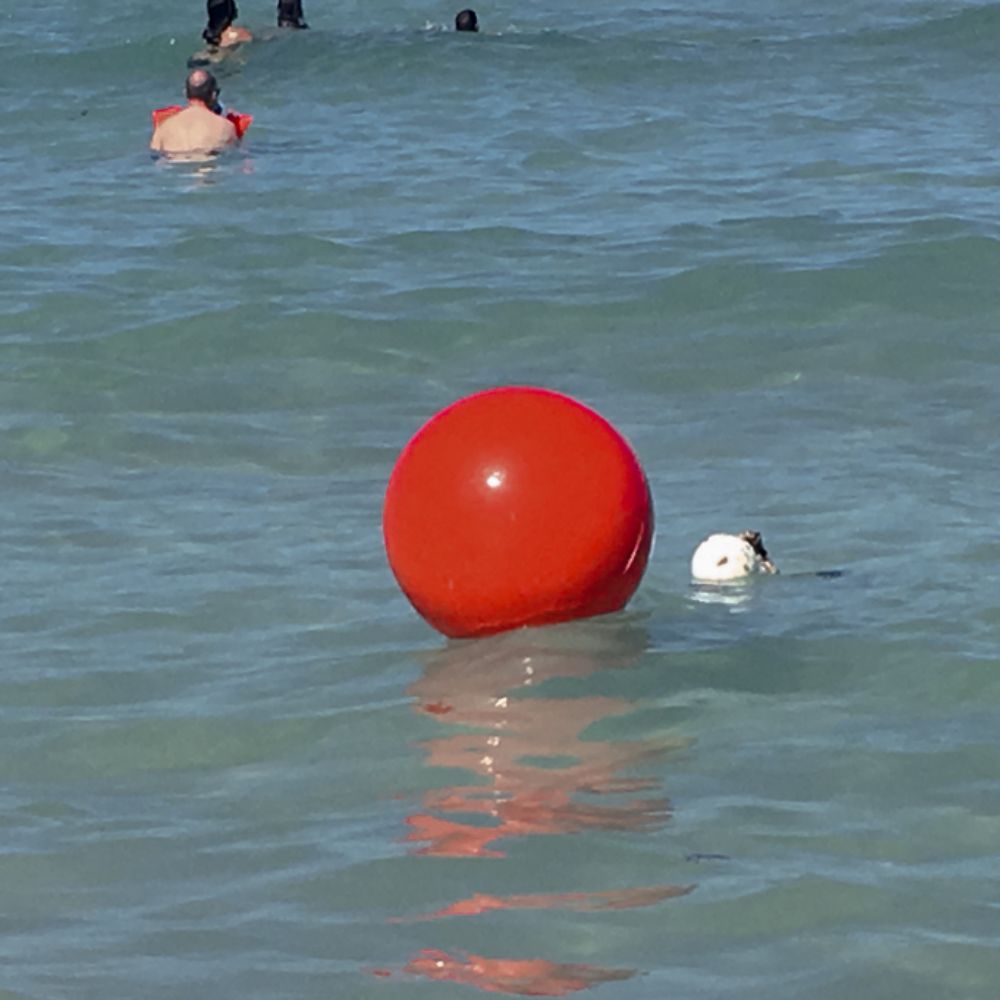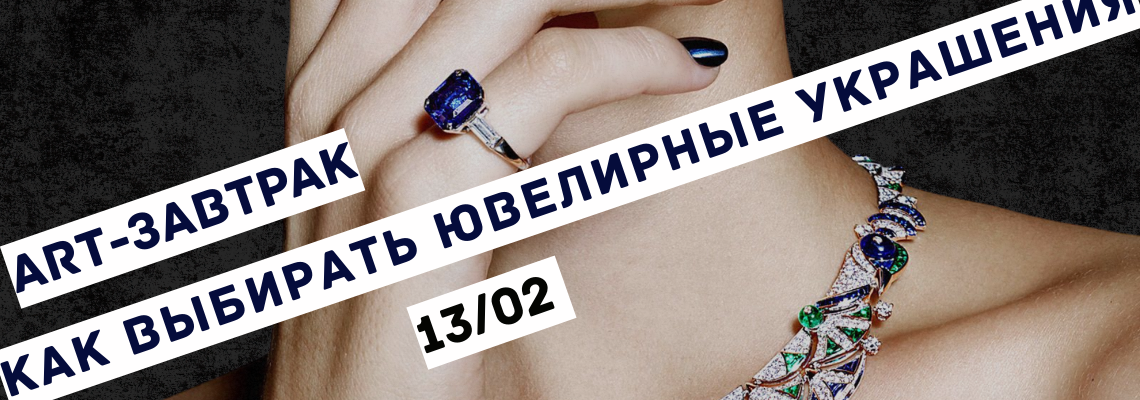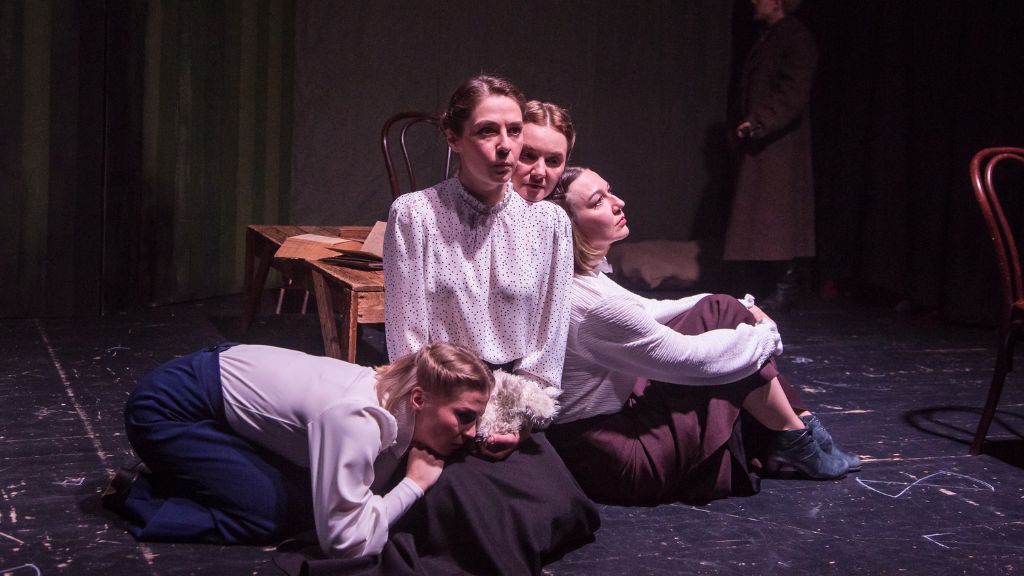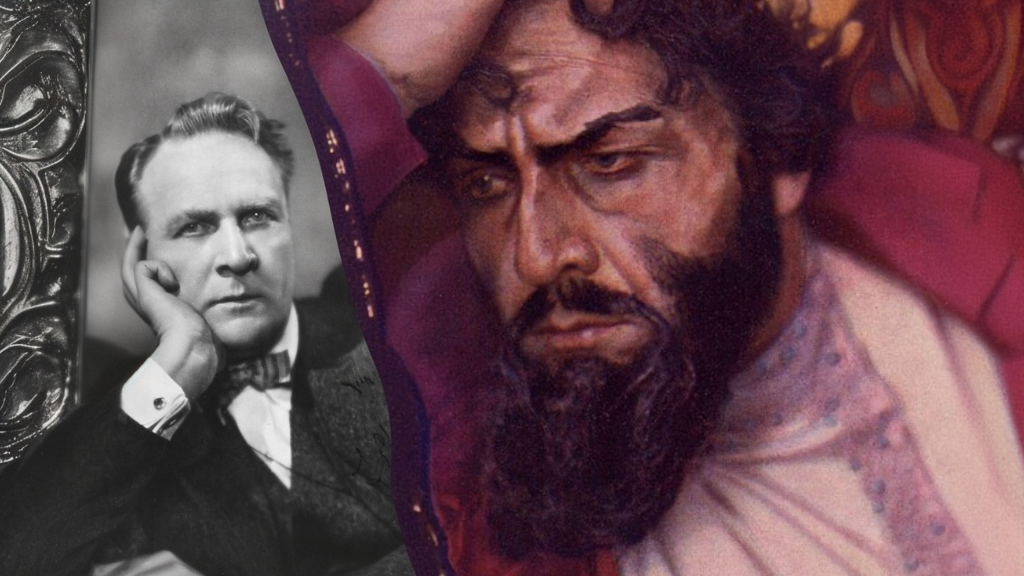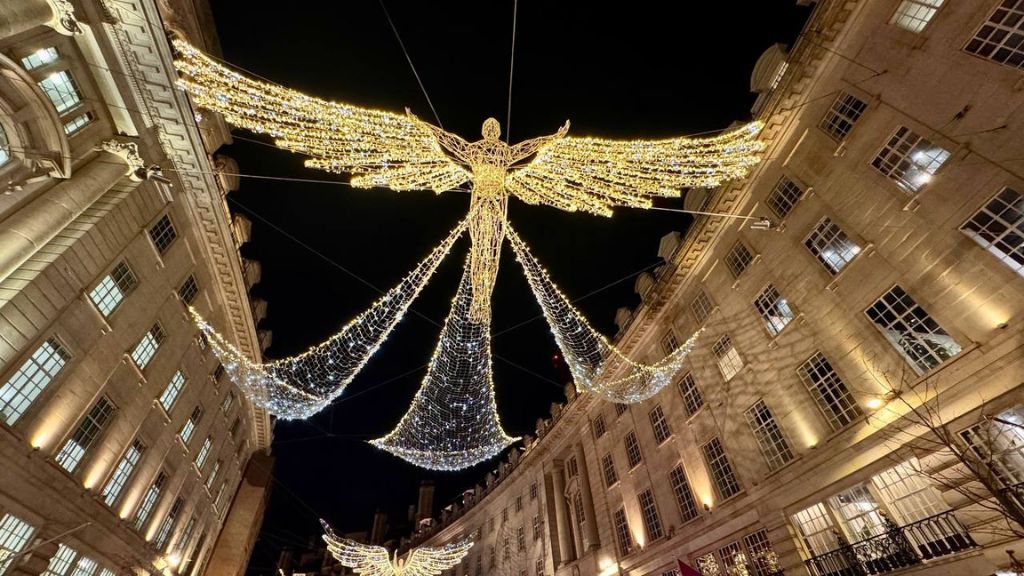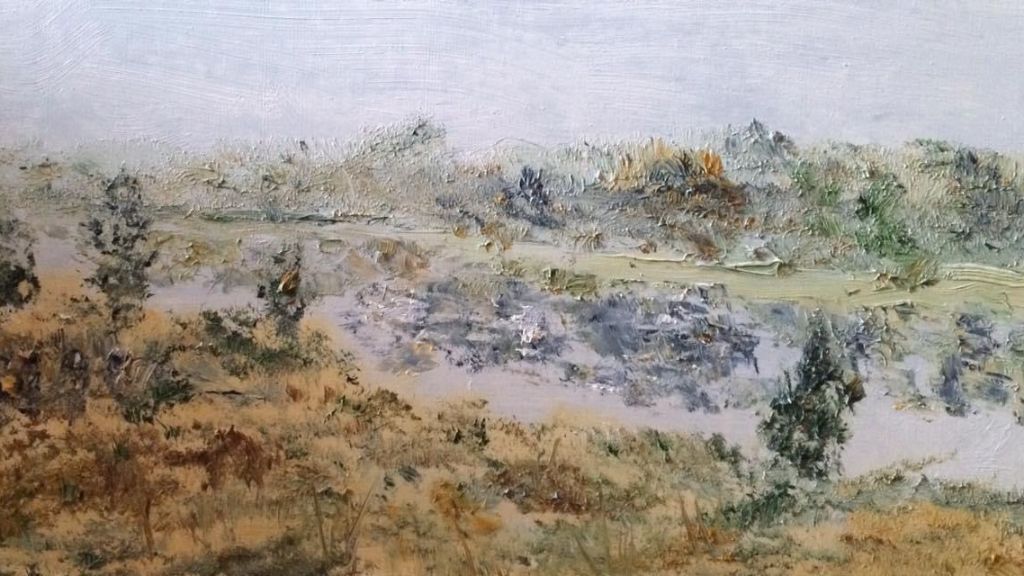
The Timeless Enigma: loneliness as explored by contemporary artists
The theme of loneliness is one of the most universal and multifaceted in human history. This phenomenon, capable of eliciting both suffering and satisfaction, has captivated the attention of not just philosophers and psychologists, but also artists of various genres for centuries. Loneliness becomes an object of either praise, when viewed as a path to self-discovery and spiritual development, or of damnation, when associated with alienation and depression. Afisha.London magazine has decided to delve into this complex topic and explore how contemporary artists interpret and understand loneliness in their works.
Tanya Verver — poet, writer (Moscow, Russia)
The poem “Jeder Stirbt für Sich Allein” delves into the overarching theme of universal solitude within a pre-apocalyptic context, examining humanity’s existential state in the face of impending global calamities. Within the verses, Tanya conjures imagery of a nuclear winter. The narrative portrays not just missed opportunities for connection and unity among loved ones, but also the poignant isolation that permeates both life and death. The poem underscores the idea that it is the fissures created by ego, rather than mere circumstance or geographical distance, that culminate in a generational catastrophe. It highlights the tragic inability of individuals to relinquish their personal ambitions and aspirations, even when faced with profound existential threats.
Set against a backdrop of external challenges, these factors drive a wedge between even the closest of individuals. Yet, the poem also harbours a glimmer of hope for transcending this solitude, envisioning a “brand-new world” where individuals can rediscover each other, having weathered the “eternal cold” of self-centred relationships.
In the poem, the concept of nuclear winter evolves into a poignant metaphor for human apathy, while the looming catastrophe metamorphoses into a soporific blanket of white noise. Through her choice of meticulously crafted words and evocative imagery, Tanya not only tackles a pertinent issue but also posits a potential resolution to this universal dilemma.
- Photo: Tanya Verver
- Photo: Tanya Verver
Here is the poem itself:
Jeder stirbt für sich allein
I tell a tale, you tell a lie
Doch jeder stirbt für sich allein
In the last tale, your soul for sale
The truth you stood for no good
Dance to the music of your soul
The never ending rock-n-roll
Touch to the bottom of your heart
Where someone is playing his card
Not much is left till his last choice
You fall asleep to the white noise
You wake up in the brand new world
Surviving the eternal cold
What’s left till our last good bye
We both cry, we both die
October 2022
Katerina Kudriavtseva — ballerina and artist (Moscow, Russia)
Through a masterful blend of movement and colour, Katerina adeptly captures the essence of human emotion and the ambient atmosphere. With a keen eye for detail, she authentically portrays the intimate vignettes of human existence, touching upon enduring themes of suffering and isolation.
“My dance is my own, and only through it can I fully express myself. In painting as well — the canvas belongs to you alone, and the better and more sincere your soul is poured onto it, the better your painting turns out. But it’s always done in solitude”, — says Katerina.
In her portrayal of “Carmen,” the heroine exults in her youth, beauty, and magnetism. With playful gestures like lifting her skirt and rollicking across the floor in laughter, she artfully mocks her onlookers. Yet, as the performance reaches its climax, Carmen hastens toward her inevitable end. The ballerina delivers a poignant representation of Carmen’s final moments: making contact with the blade of a knife, she alternates her gaze between her hands and the heavens, before resting it once more on her hands. Amidst the profound silence that precedes her death, she initiates a subtle pirouette, eventually coming to rest in a pose that captures her essence — beautiful, dignified, and eternally alone.
- Photo: Katerina Kudriavtseva
- Photo: Katerina Kudriavtseva
Katerina stands as another exceptional artist who frequently grapples with the theme of loneliness in her oeuvre. This motif is notably illustrated in her painting “Along the Frozen Volga,” which portrays a solitary individual laboriously dragging a sled across a bleak winter landscape. Hunched and subdued, they embody isolation against a dark and forbidding sky. At a cursory glance, the painting may appear to depict a mere snow-blanketed field; however, Katerina subtly imbues the scene with nuanced details. Subtle turquoise undertones permeate the white expanse, subtly revealing the icy layer beneath the snow, suggesting that beneath its frozen exterior, the river churns with unrestrained energy. The diagonal pathway, the slight tilt of the sky, and the trajectory of the solitary figure all contribute to a sense of movement within the painting, transforming an ostensibly static scene into a narrative of poignant dynamism. Through this, Katerina enlivens the loneliness, lending it both texture and vitality.
Ana Andreeva — multidisciplinary artist (Brooklyn/New York, USA)
Andreeva’s artistic endeavour, “Second Cheek,” profoundly explores the intertwined emotions of loneliness and sorrow that accompany the loss of a pet. The project eloquently dissects both our vulnerabilities and newfound perceptions, serving as a lens through which we can more acutely experience both sorrow and awareness. The themes of loss and solitude not only expose our delicate emotional landscapes but also paradoxically sharpen our senses, enabling us to discern the remarkable amidst the commonplace.
- Photo: Ana Andreeva
- Photo: Ana Andreeva
The series comprises an eclectic collection of photographs from Andreeva’s mobile phone, all captured during the year her pet bird, Second, was still alive. The vivid red of his cheek emerges as a recurring motif, manifesting in various forms—be it a street sign, the icing on a biscuit, a decal on a t-shirt, or an apple left unattended on a tube bench. Viewed through the prism of Andreeva’s loneliness, Second’s memory endures, morphing into an ever-present companion. His essence pervades her existence, manifest in the subtlest of sensations: the scent in the air, shapes that catch her eye, fleeting gusts of wind, and the distant chirps of other birds.
Read more: Composer Pyotr Tchaikovsky in London: impressions, recognition and success
Andreeva’s “Second Cheek” stands as a compelling tribute to the unbreakable bonds formed between humans and their pets, offering a heartfelt examination of attachment and mourning. The project deftly interlaces universal motifs of solitude, companionship, loss, and memory, presenting a visual tapestry that encourages viewers to undertake their own emotional explorations.
Ana has curated a sequence of images drawn at random from her phone’s camera roll, each photograph capturing a moment from the year her pet bird, Second, graced her life. The bird’s distinctive bright-red cheek becomes a recurring visual motif, unexpectedly surfacing in diverse scenarios—be it the icing on a batch of biscuits, a sticker adorning a t-shirt, a street sign, or an apple left abandoned on a subway bench. As captured through the lens of Ana’s solitude, these memories transform into a source of comfort, granting her pet a form of immortality. In this way, Second maintains a spectral yet comforting presence, its essence encapsulated in myriad forms—shapes, scents, whispers of the wind, and the distant chirps of other birds.
Dance, poetry, photography—each artistic medium possesses the capacity to communicate the artist’s unique perspective on loneliness, as well as their underlying philosophy on the subject. Ultimately, it is we who decide how to engage with this inescapable condition: whether to find it mesmerising or to shy away from it. The diverse works of artists serve as invaluable tools in this respect, encouraging us to examine loneliness from multiple vantage points, some of which we may have never even considered.
Victoria Dini
Cover photo: Katerina Kudryavtseva
Read more:
Anna Akhmatova in the UK: A Poetess, Muse and Femme Fatale
Rudolf Nureyev: An Emigrant, Who Became a Ballet Legend
Felix Yusupov and Princess Irina of Russia: love, riches and emigration
SUBSCRIBE
Receive our digest once a week with quality Russian events and articles

